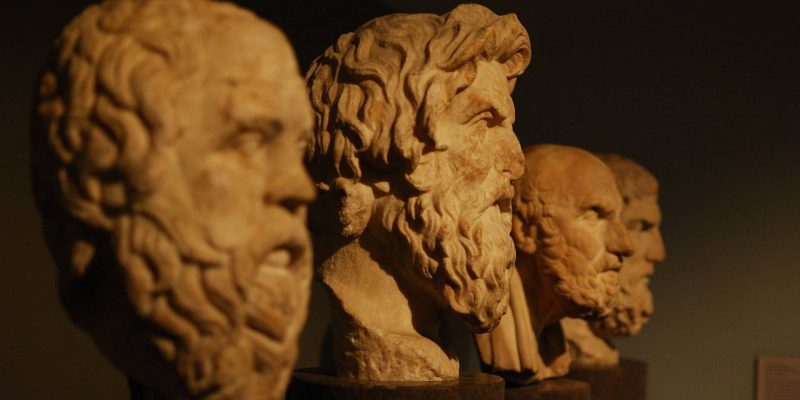We explain what ethics is, what its branches of study are and its relationship with morality. In addition, its characteristics and what is bioethics.
What is Ethics?
Ethics is a branch of philosophy that studies the correct and incorrect of human behavior , based on morality , virtue, duty, happiness and other aspects based on which the human being evaluates his existence in society. It has its roots in the ancient Greek philosophy and value system, but its historical trajectory has been diverse and complex over the centuries.
At the same time, ethics is used to refer to respectful and honorable behavior within the framework of some activity or dedication . Thus, we speak of professional ethics, political ethics, medical ethics, etc. Said behavior would be typified in the professional and deontological codes that regulate the specific activities of the different sectors of society .
History of Ethics

Ethics was dealt with by ancient Greek philosophers such as Plato , whose works Gorgias , Phaedo and The Republic delve deeply into the edges of the matter. So did his disciple Aristotle , founder of the Western rationalist tradition, who inquired into the nature of happiness and the happy life in his Nicomachean Ethics .
During the Middle Ages, on the other hand, that freedom of philosophical thought was lost and Christian values, defended tooth and nail by the Church , came to govern the ethical life of the West , under the pen of authors such as Saint Thomas Aquinas, Saint Augustine of Hippo and others.
This will continue until the arrival of the Modern Age and the Renaissance , when the Greco-Roman tradition will be taken up and joined with medieval scholasticism. Rationalism will then occupy the conduct of ethical issues , following the work of philosophers such as Baruch Spinoza, David Hume, Immanuel Kant, among others.
Contemporary ethics, beginning in the 20th century , has confronted the tragic events of Nazism and nihilism , atomic warfare, and the responsibility of human beings towards the species and life on the planet .
Etymology of the term Ethics
The word ethics comes from the ancient Greek, from the word ëthikós , and also from the Latin ethicus . Specialists distinguish between êthos (“character”) and ethos (“custom”) as the possible origin of the term.
Branches of Ethics

In contemporary philosophy three levels of ethics are distinguished:
- Metaethics. It studies the origin, meaning and characteristics of ethical principles, as well as matters related to morality, since it deals with ethics thinking of itself. Some of the frequent problems of metaethics are the problem of what is and what should be, the existence or not of free will, etc.
- Normative ethics. He is specifically interested in the normative criteria of morality , that is, in those precepts that determine when a behavior is ethical and when it is not, based on three different approaches: consequentialism, deontology and virtue ethics.
- Applied ethics. This branch tries to apply the principles of ethics to everyday and concrete problems and interests, that is, it thinks about specific problems of society from an ethical point of view. Branches of ethics.
Relations between ethics and morals
Although they are often considered synonymous, ethics and morals are two different but related things.
Morality has to do with the set of spiritual, social and personal norms with which a certain community is governed, based on what is considered "good" and what is considered "bad".
Ethics, on the other hand, aims to review the codes of values and the thinking inherent in them, that is, it does not evaluate its issues based on what is permitted and what is prohibited, but instead tries to put into perspective the possible models of behavior around to a certain topic.
Thus, while morality judges, ethics understands .
Professional ethics

Professional ethics is that linked to the exercise of a specific trade . He is interested in the limits of the exercise of said work in an honest and responsible manner, as well as in the deontological codes that govern professional groups. For example, the journalist's code of ethics is a regulation that contains the principles of the "healthy" exercise of said profession, as it is understood at a given time and tradition.
Personal Ethics
Personal ethics is understood as the way that a specific individual has to manage himself in society and in the various spheres of personal interaction that concern him. It is an approach regarding the values with which a person chooses to live his life, many of which will be determined by his moral, religious, professional and cultural tradition, but also by vital choices that the individual will have to make for himself. own account.
Personal ethics concerns the field of interpersonal relationships and has to do with issues such as adultery, loyalty, friendship, love , etc.
Ethic and religion

Over the years, the great religions have proposed different moral codes to regulate the lives of their parishioners, according to what they understand as the guidelines given by God . Ethics often studies these codes and the tradition they establish over the centuries, to understand how the religious imprint on cultures influences the behavior and scales of values adopted by one society or another.
Bioethics
Bioethics is a branch of ethics that studies the ways of relating to human beings with life : both their own, that of their fellow human beings and that of other living beings . It is a field of study very closely linked to scientific developments, to the practice of medicine and to environmental preservation, mostly.
Cloning, induced abortion, experimentation on humans and animals , etc. are some of your possible topics of interest.
Limits with other disciplines

Ethics has close links with other disciplines, such as anthropology , law , and with empirical sciences such as sociology and social psychology , since it is interested in the rules with which human groups evaluate or govern their actions and carry out their decision -making. decisions .
Importance of ethics
Ethics is a fundamental branch in philosophy, since it helps man to think about himself and the way he conceives what is right and wrong in the different themes of his life. Ethics is key in the formation of codes of conduct and in the administration of justice , although it itself does not seek to discern between good and bad, but to think precisely about that distinction.
The above content published at Collaborative Research Group is for informational and educational purposes only and has been developed by referring to reliable sources and recommendations from experts. We do not have any contact with official entities nor do we intend to replace the information that they emit.
Cultural journalist with great interest in education and technological innovation in the classroom. The future passes through technology and it is already here. .
Leave a reply
Your email address will not be published. Required fields are marked *Recent post

Sport: What Is It, Types, Risks, Features, Characteristics and Examples

Dogs: Emergence, Features, Characteristics, Feeding and Breeds

Story: Definition, Elements, Structure, Features and Characteristics

